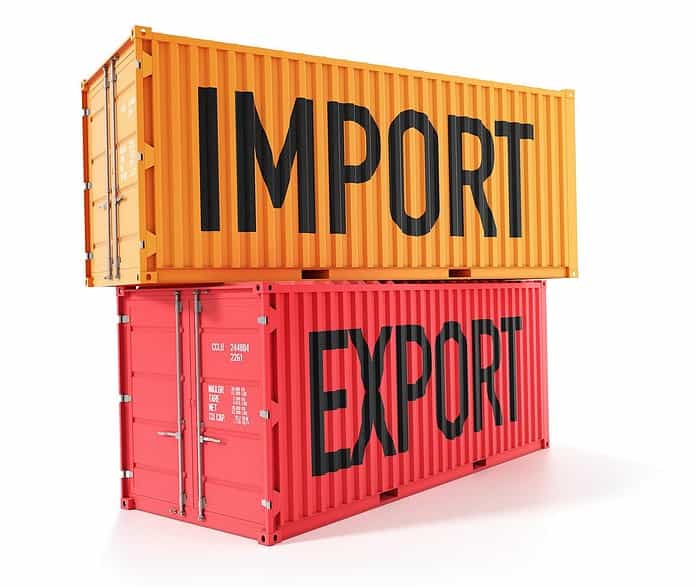Last Updated on October 10, 2024 by The Health Master
The Directorate General of Foreign Trade (DGFT) has extended the implementation of track and trace system for export of pharmaceuticals with respect to maintaining the parent-child relationship in packaging levels and its uploading on the Central portal till April 1, 2023 for both SSI and non-SSI manufactured drugs.
A public notice has been issued by the DGFT in this regard. According to the DGFT’s previous order, the track and trace system was to be implemented from April 1, 2022.
This has provided a sigh of relief to drug exporters especially pharma MSMEs reeling under covid-19 pandemic aftershock.
Pharma MSMEs are not in a position to create requisite infrastructure involving huge funds to implement the trace and track system. They had sought deferment of its implementation.
Welcoming the DGFT’s decision to defer track and trace system implementation for export of drug formulations, Nipun Jain, chairman, Small and Medium Pharma Manufacturers Association (SMPMA), said:
“The pharma MSMEs are grappling with pandemic aftershocks. There has been a significant decline in the capital base since the outbreak of Covid-19 pandemic. Small and medium firms lack resources to create the requisite infrastructure for drug authentication system. On the other hand, major importing countries have not required barcoding on pharma products.”
Earlier SMPMA, a pan India association of Indian MSME pharmaceutical companies had requested DGFT to defer the implementation of track and trace system for export of drug formulations in the wake of infrastructure and financial constraints faced by the drug industry since Covid-19 outbreak and lack of major importing countries’ requirement for such system.
Echoing his view, Amit Chawla, secretary, MP Small Scale Drug Manufacturers Association said “MSMEs are considered the pillars of the Indian economy due to their considerable contribution to GDP, exports and employment generation.
They have made a significant contribution to ensuring availability of affordable drugs in India and other low-and medium-income countries. The MSMEs are facing challenges of running a business amidst pandemic and rising cost of raw materials and packing materials.
Earmarking funds for implementation of drug authentication system has become a herculean task for them. The DGFT’s year-long extension of track and trace system implementation has provided a timely relief to pharma MSMEs.”
Federation of Pharmaceutical and Allied Products Merchant Exporters also hailed this step of DGFT. “We insist to postpone implementation till track and trace is universally implemented for products meant for domestic consumption as well as exports,” said Sandeep Modi, secretary, FPME.
Earlier the commerce ministry, through the Centre for Development of Advanced Computing (C-DAC), was supposed to launch the Integrated Validation of Exports of Drugs from India and its Authentication (iVEDA) portal for drug authentication and tracking and tracing of the drug supply from April 1, 2020 which got extended till October 1, 2020 due to the Covid-19 pandemic and lockdown announced by the government to contain its spread.
The DGFT had again extended its implementation till April 1, 2021 following industry’s appeal. The timeline for track and trace system implementation was further extended till April 1, 2022.
Now the date for its implementation has been extended by one year.
The manufacturers and exporters are required to barcode their products using GS1 standards along with the batch number, expiry date to facilitate authentication of exported drugs.
They are also required to upload data on barcodes on secondary and tertiary packaging of exported drugs on the iVEDA portal which is set to replace Drugs Authentication and Verification Application (DAVA) portal. Maintaining parent-child relationship between secondary and tertiary packaging is optional.
The DAVA portal had hit technical glitches hampering manufacturers and exporters from uploading data on barcodes on secondary and tertiary packs of drugs meant for export and maintenance of parent-child relationship between them.
USFDA issues 4 Observations to Lupin for Tarapur Facility
Govt approves Medical Devices Park common facilities in HP and MP
Dr Reddy’s launches generic Methylprednisolone Sodium Succinate for injection
Certain Products recalled due to Microbial Contamination
USFDA approves Cell Therapy for earlier lymphoma
Drug Recall: IDArubicin Hydrochloride Injection recalled due to this reason
USFDA gives 13 observations to Lupin
Govt further extends timeline to apply for slots under PLI scheme
CDSCO panel gives nod to Roche for Anticancer Drug Entrectinib Capsules
Latest Notifications regarding Pharmaceuticals








